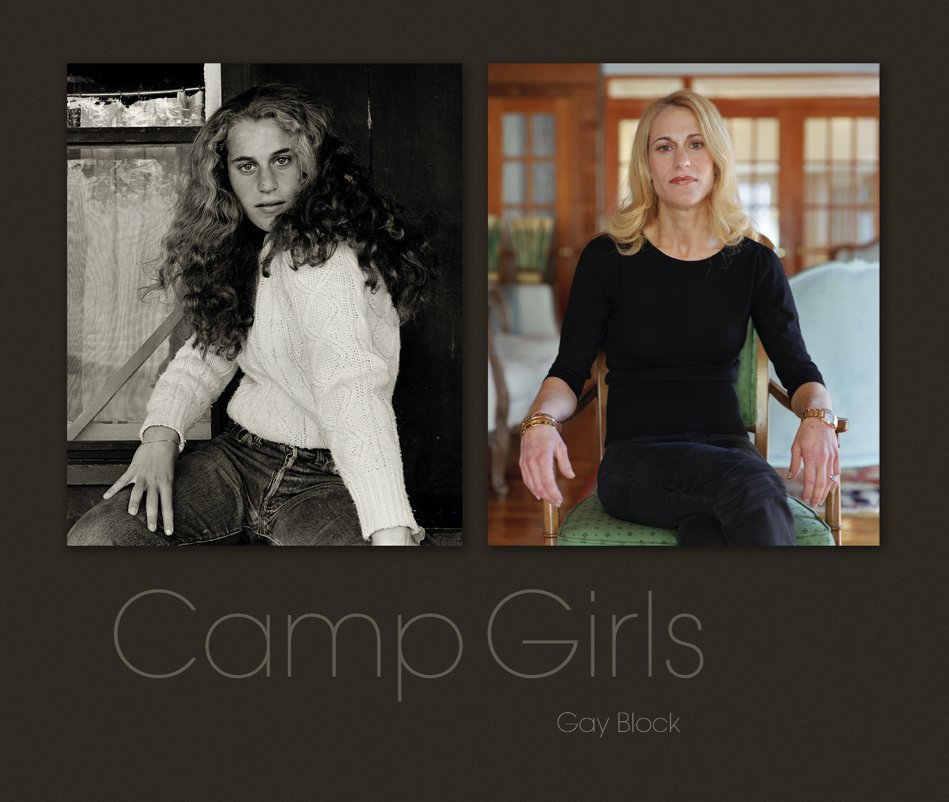About the Book
In 1981 I returned to the summer camp I had attended in the fifties to visit my daughter during her last of seven summers there. Curious to see what the girls were like, I got permission to stay a week to photograph the campers. Who were these girls? What did they talk about? Had it been a mistake to send Alison to a camp of privileged girls? What values had she learned there?
As I looked at the girls through my lens, however, none of these questions entered my mind. Instead, I became fascinated with what they looked like. I loved the innocence and promise in their faces. I saw in them what I imagined as their future selves, the wives and mothers they would become. Or would they?
I had a new set of unspoken questions because my own life had changed so dramatically three years earlier: I had left my marriage and begun my life as a lesbian. As I looked into the girls’ eyes I wondered about their future choices, but I never asked any questions. One of the girls was overweight. She reminded me of myself, of my own plump body at her age – she was perhaps ten years old. I hesitated approaching her but I also didn’t want to leave her out. I was sure she didn’t want me to photograph
her but felt she’d be too shy to say no. I hoped her portrait would show the exclusion and suffering overweight adolescent girls
experience in our society.
When I exhibited her picture in the early nineties at The Jewish Museum in New York, her mother called me to ask that I never exhibit it again. Explanations of my personal identification with and empathy for overweight girls did not convince her. She said, "Your motives sound noble but they wouldn’t mean anything to my daughter. She would be embarrassed if she saw this picture." I wondered if it were really her daughter or herself who would be embarrassed. My mother hated my being overweight.
Nevertheless, I promised not to show it again.
As I looked at the girls through my lens, however, none of these questions entered my mind. Instead, I became fascinated with what they looked like. I loved the innocence and promise in their faces. I saw in them what I imagined as their future selves, the wives and mothers they would become. Or would they?
I had a new set of unspoken questions because my own life had changed so dramatically three years earlier: I had left my marriage and begun my life as a lesbian. As I looked into the girls’ eyes I wondered about their future choices, but I never asked any questions. One of the girls was overweight. She reminded me of myself, of my own plump body at her age – she was perhaps ten years old. I hesitated approaching her but I also didn’t want to leave her out. I was sure she didn’t want me to photograph
her but felt she’d be too shy to say no. I hoped her portrait would show the exclusion and suffering overweight adolescent girls
experience in our society.
When I exhibited her picture in the early nineties at The Jewish Museum in New York, her mother called me to ask that I never exhibit it again. Explanations of my personal identification with and empathy for overweight girls did not convince her. She said, "Your motives sound noble but they wouldn’t mean anything to my daughter. She would be embarrassed if she saw this picture." I wondered if it were really her daughter or herself who would be embarrassed. My mother hated my being overweight.
Nevertheless, I promised not to show it again.
Features & Details
- Primary Category: Arts & Photography Books
-
Project Option: Large Format Landscape, 13×11 in, 33×28 cm
# of Pages: 52 - Publish Date: Jul 23, 2008
- Language English
- Keywords 1981, Camp, Jewish, Re-Photographic
See More

